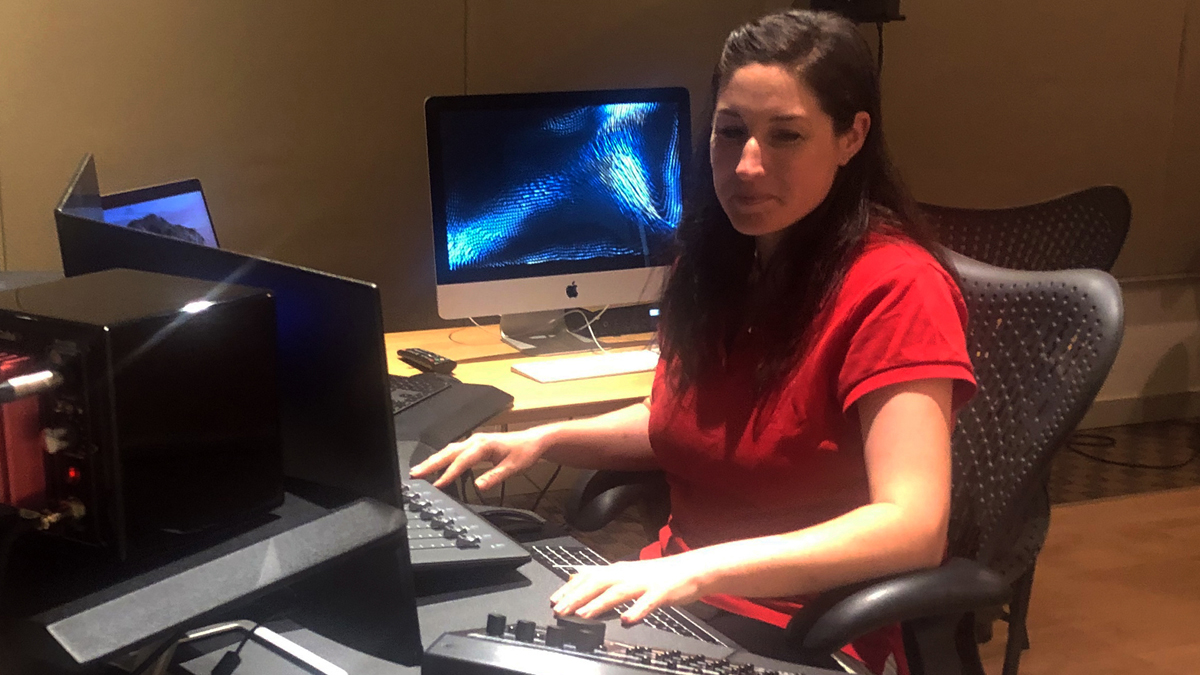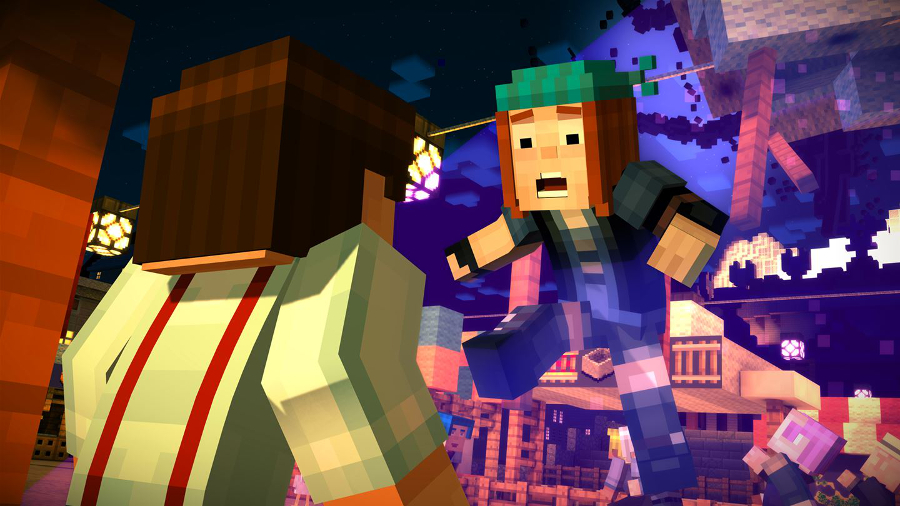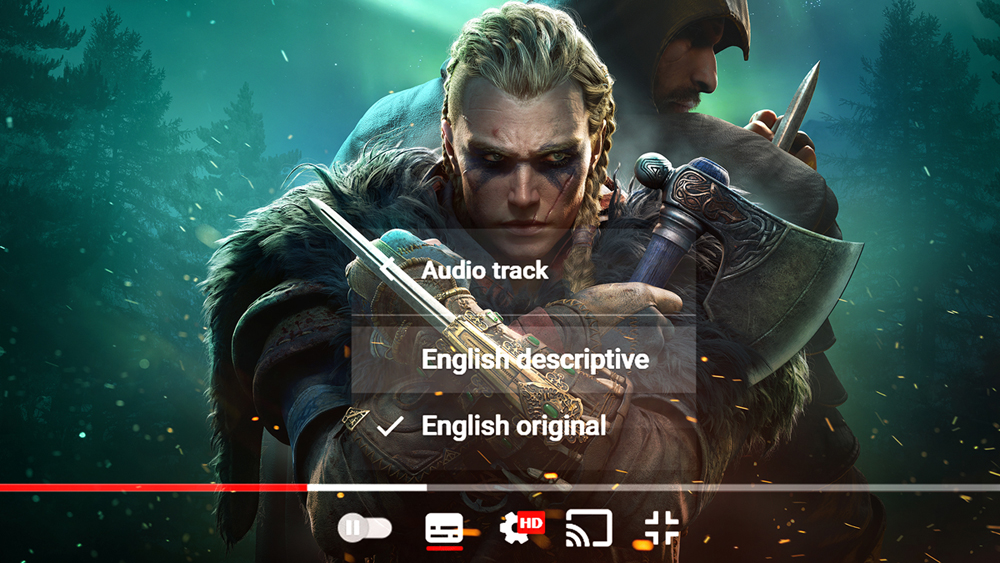Meet the audio description experts making games more accessible to the visually impaired
Accessibility in video games has been improving dramatically in recent years, with last year being particularly notable. The sheer scope of accessibility features in both the critically-acclaimed The Last of Us Part 2 and Ubisoft’s Watch Dogs Legion was inspirational, while Rare continued to roll out updates that added accessibility improvements to Sea of Thieves. All of these are encouraging examples that developers are becoming more aware of the importance of accessibility options.
This tremendous work has spanned indie and AAA studios alike, but accessibility has been slowly improving across the industry as a whole. Examples include The Game Awards 2020 announcing an accessibility-focused award, alternative text being supplied for visual marketing assets, and trailers with full captions being made more readily available.
Some studios have also made an explicit commitment to accessibility in 2020. David Tisserand, Ubisoft’s Accessibility Senior Manager, explained in an interview with DualShockers that the company wants to embed accessibility into its DNA, starting with a focus on blind initiatives. This saw Ubisoft teaming up with audio description specialist Descriptive Video Works (DVW) to add audio description to some of Ubisoft’s biggest trailers of the year, including the world premiere of Assassin’s Creed Valhalla.
TechRadar spoke with DVW Studio Head Rhys Lloyd and Client Services Manager Melissa Hope to learn more about what the company does, its involvement with Ubisoft, and its plans for improving accessibility across the gaming industry going forward.
What is Descriptive Video Works?

Founded in 2003, Descriptive Video Works specializes in providing audio descriptions for media. The company was founded on “the belief that there was more that could be done to connect people who are blind or visually impaired to media content”, says Lloyd. When founder Diane Johnson started the company, she believed that, “it was important that not only the service be done, but the service be done well” and “to be done with the right spirit and heart in mind”, Lloyd tells us.
"[We wanted to] challenge our own assumptions about what was important when it came to describing race in a program."
Rhys Lloyd - Descriptive Video Works
In order to be able to produce quality audio descriptions, DVW’s writers go through a “fairly extensive training program”, and it can be months before they’re placed in the production environment. And, Lloyd adds, “When it comes to engineering, the mixing, and the sound design of the final product, we probably have two of the most experienced audio description mixers in the business.”
Descriptive Video Works operates with an advisory council of blind and visually impaired people on some projects, although this is on a project-to-project basis. Lloyd offers the example of how the company worked with blind and visually impaired people of color in a focus group in 2020 so that the company could “challenge our own assumptions about what was important when it came to describing race in a program”.
“We seek those answers from the community because they're the community we're serving. We want to make sure that we're hitting those notes appropriately,” he continues.
Working so closely with communities is important to DVW as it enables its staff to ensure that terminology and culture are represented correctly. And thankfully, social media is populated with disabled and non-disabled advocates who are part of the #a11y community — a global movement that aims to make more digital content accessible.
This community has encouraged the gaming industry to place greater emphasis on conversations surrounding accessibility, and this, in turn, has led to accessibility consultants helping developers to understand and break barriers in games, as exemplified by Naughty Dog with The Last of Us 2’s comprehensive accessibility options. It’s clear that Descriptive Video Works understands the importance of listening to such voices.
Descriptive Video Works’ step into gaming begins

Minecraft: Story Mode, an episodic point-and-click adventure, released on Netflix in 2015, and marked Descriptive Video Works’ first foray into using audio description with interactive media. The company’s work on Minecraft: Story Mode inspired it to look into the medium of gaming beyond the Netflix experience and, towards the end of 2019, DVW began researching how it could implement its accessibility expertise in video games, speaking with gaming communities and people in the gaming industry.
Keyword Studios, a company that provides numerous services to studios in the video games industry, and which acquired DVW in 2019, spoke with Ubisoft as this research was wrapping up. This conversation with the studio led to Descriptive Video Works working with Ubisoft to provide audio descriptions for several Ubisoft trailers.
Melissa Hope describes what it was like working explicitly with a video game studio as opposed to streaming companies such as Netflix: “The great thing about working with Ubisoft on those trailers was how much we could work directly with the people who are making the trailers, and even those who had made the game. That's not always something we have the opportunity to do with a movie.”
Hope detailed how Ubisoft highlighted easter eggs in the trailers to “make sure that a blind or low-vision person watching the trailer would be able to participate in the same conversations”.
She uses Assassin’s Creed Valhalla – the first trailer to come from the partnership – as an example. “I guess in the Assassin's Creed franchise, the knife is on the inside of the protagonist’s forearm, and on this one [Valhalla], it was on the outside,” she says.
“That wasn't something that anybody from outside of the game would know. But fans would realize that, and they would see that in the trailer. So we had to make sure that that detail was included in the description.”
Another detail that Ubisoft wanted to ensure was described was the brief appearance of a cat in one Valhalla trailer. “There's a one-second scene where the hero pets a cat, and they're [Ubisoft] like, ‘Make sure you've mentioned that he's holding the cat because there's a whole online thing’.” With so much happening on-screen, highlighting such details means the user can be included in the excitement.
Breaking the barriers

Both Lloyd and Hope have observed the video game industry’s progress on accessibility issues, and are excited to be part of it. “Like everybody who works for us, this is what we're focused on,” Lloyd tells us. “Our whole ethos is around breaking the barriers that prevent people from enjoying content – you're trying to reach people. Why wouldn't you try to reach everyone?”
"Our whole ethos is around breaking the barriers that prevent people from enjoying content – you're trying to reach people. Why wouldn't you try to reach everyone?"
Rhys Lloyd - Descriptive Video Works
The company currently focuses on English-language descriptions, and Lloyd acknowledges that offering localized audio descriptions is one area where there’s potential for growth. He stresses the importance of making accessibility tools available to wider audiences and hopes the company’s acquisition by Keyword Studios - which specializes in localization - will help offer that growth in the future.
As a result of its work with Ubisoft, DVW has already been able to reach more gamers through the use of a new audio track feature on YouTube. This allows users to activate audio descriptions directly within a trailer or promotional video, rather than have to watch a separate upload.
Lloyd wants to see more companies implement audio-described content, and believes that making more content more accessible would lead to “opening up new avenues of customers”.
He adds that DVW has “a handful of irons in the fire” with other studios and projects related to video games. He explains that he can’t provide details due to non-disclosure agreements, but hints that DVW may be experimenting with audio description in games, and “incorporating it at that sort of cinematics and cutscenes level”.
Greater innovation in the field of accessibility will mean more gamers can enjoy immersive experiences, and it’s something we very much want to see. While sticking to tried and tested methods is a safe bet, there’s always room to experiment and invite user feedback. We’re curious to learn what studios DVW is working with, and to see where their collaborations with Ubisoft and The Game Awards lead.
It’s clear that Descriptive Video Works is on a mission – a mission to ensure that the day will come where no gamers feel excluded, or unable to access content, due to accessibility issues. We wish them well, and look forward to seeing more big names in the industry joining the cause.
from TechRadar - All the latest technology news visit

Comments
Post a Comment